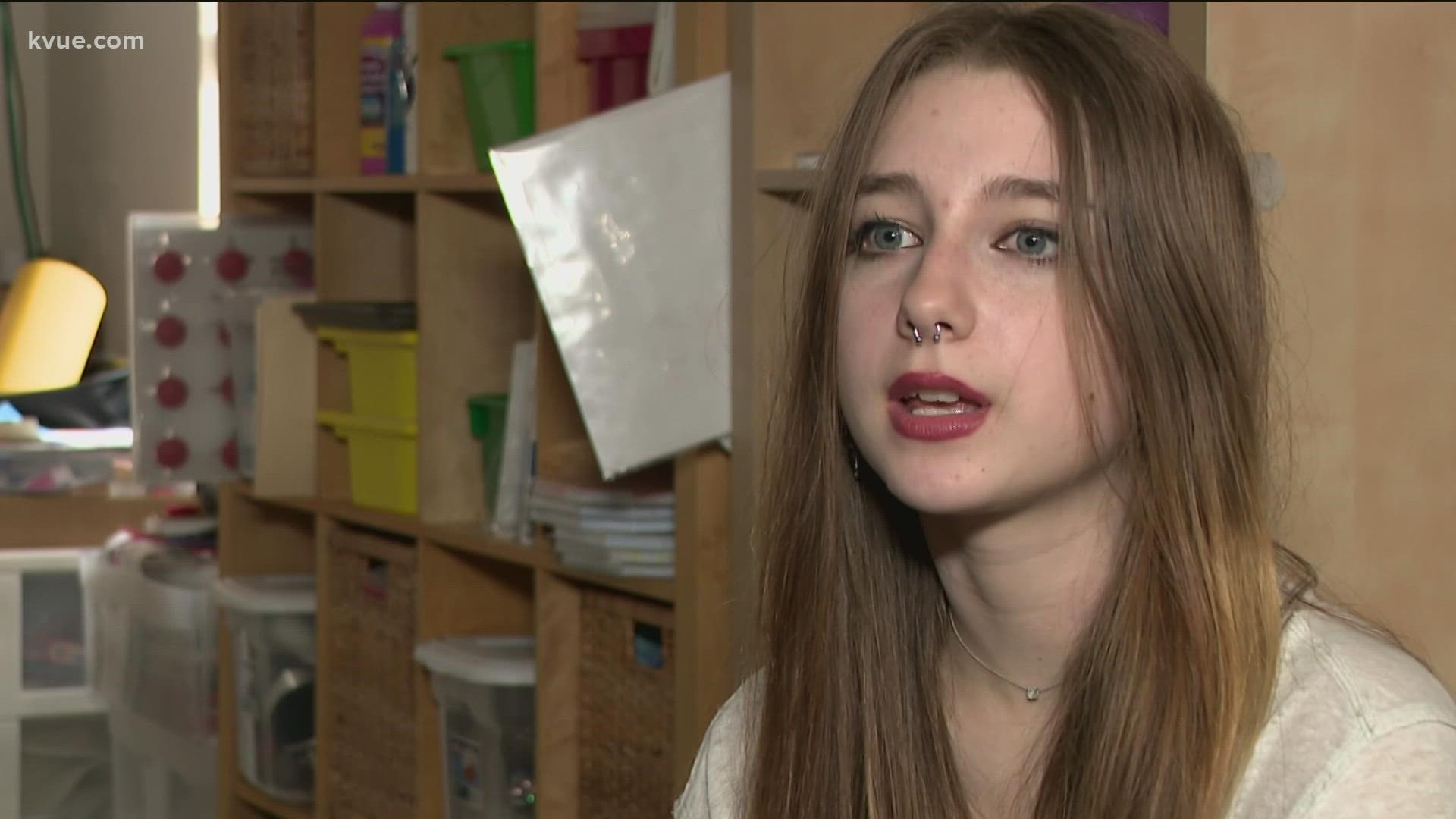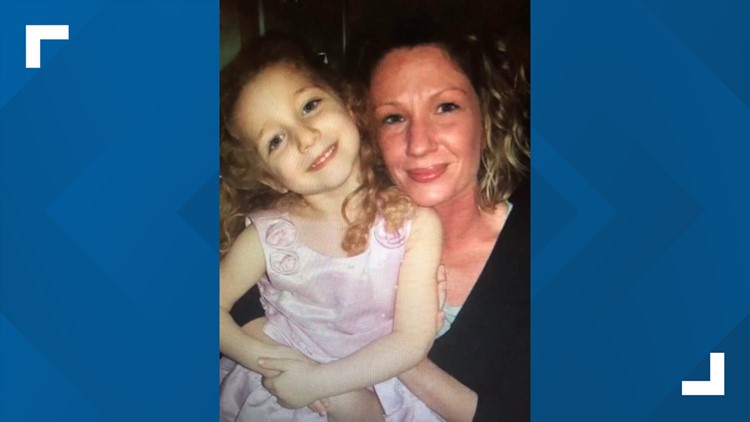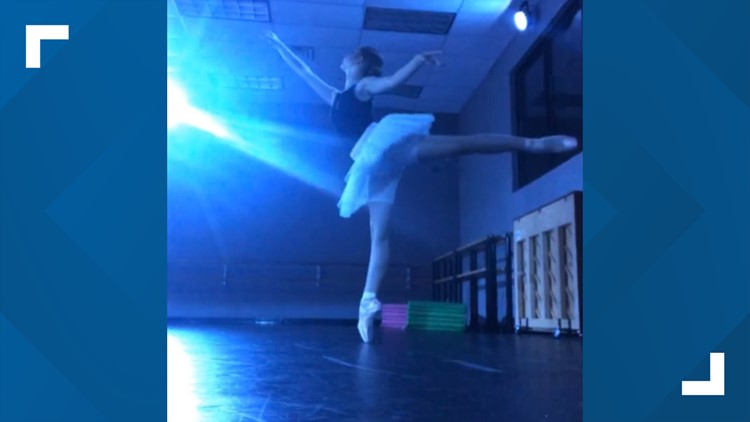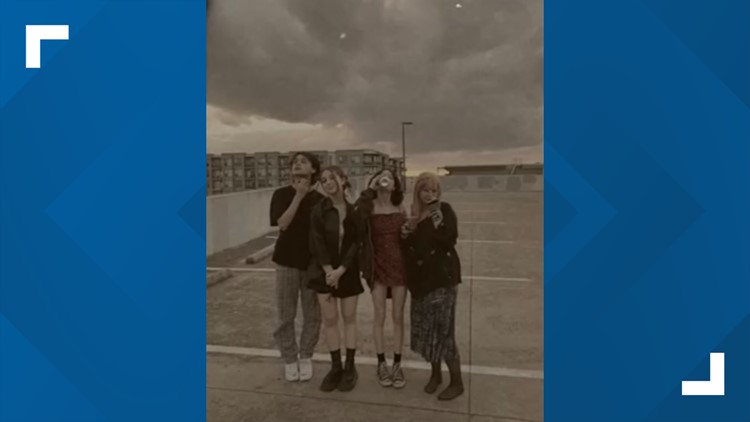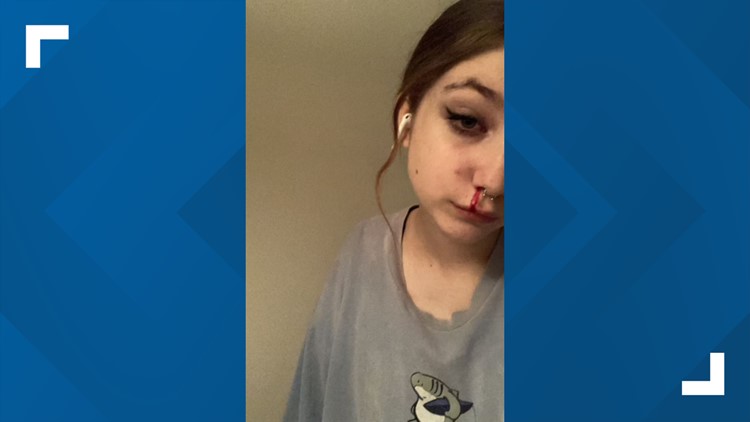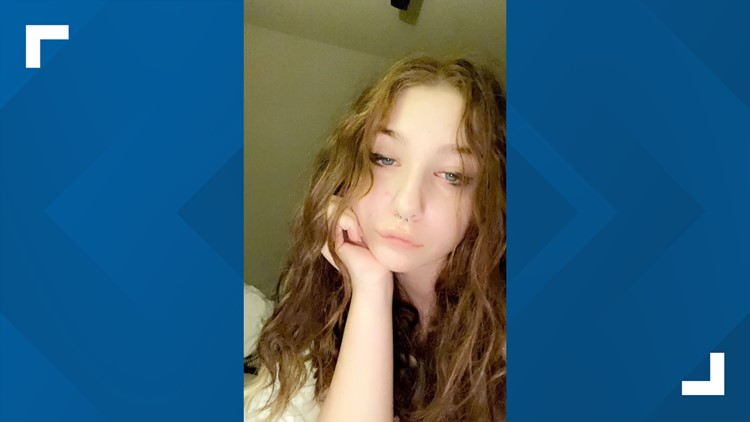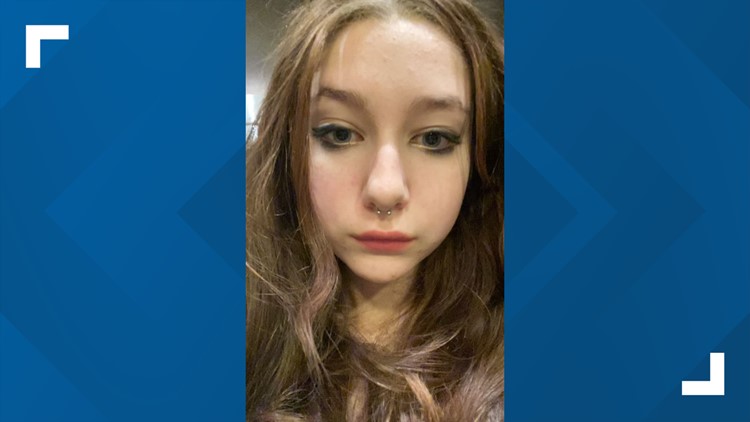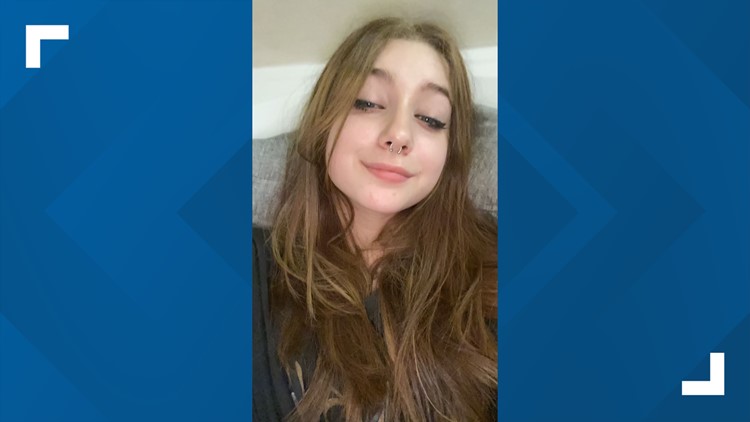After tempting fate many times, an Austin teen hopes to use her story of recovery to help others
Gabi, 16, is in recovery. She's joining medical experts and first responders in efforts to reverse the deadly trends.
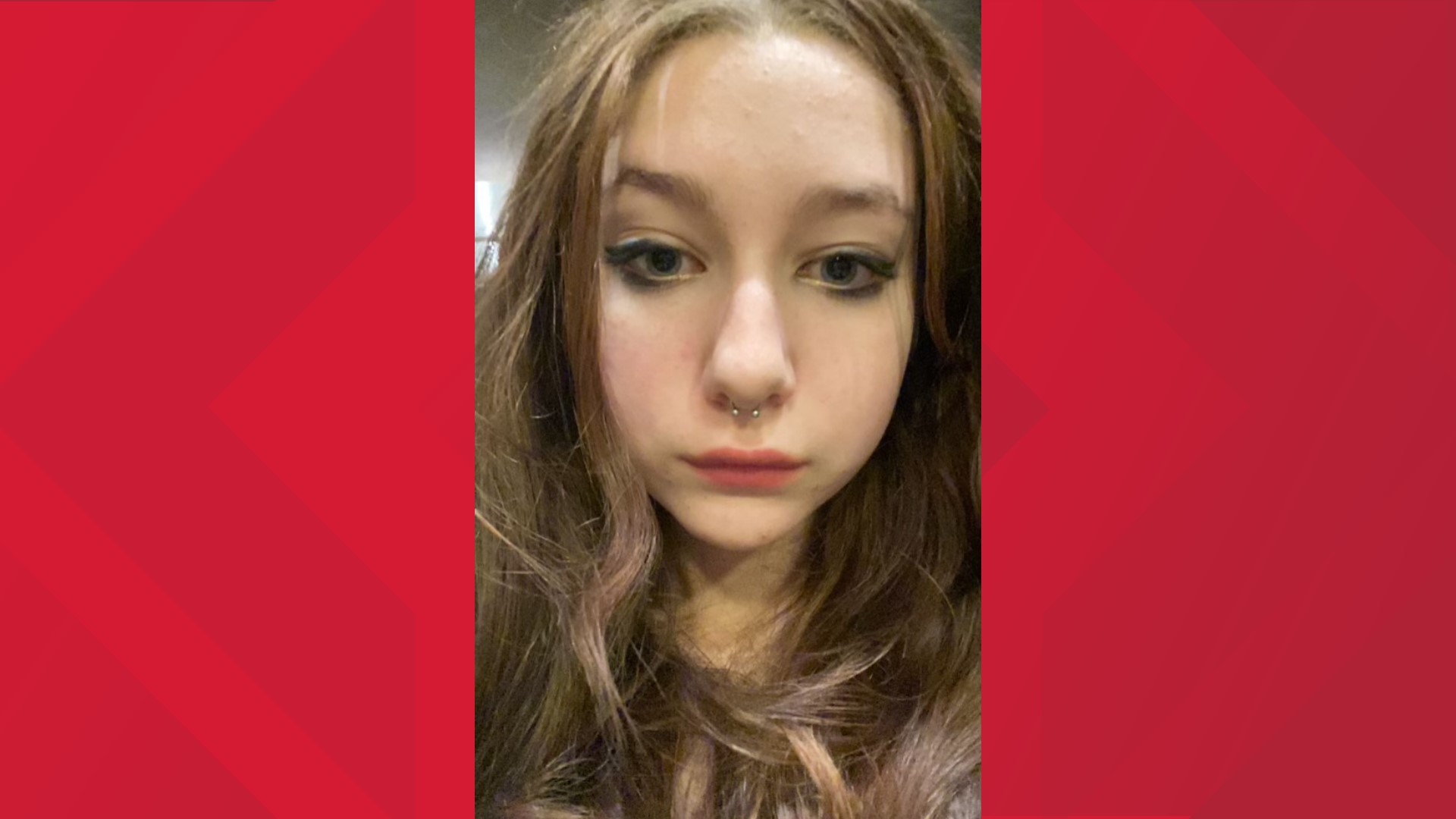
Drug-related overdoses and deaths are on the rise across the country, in Texas and right here in the Austin area.
It's an epidemic that cost nearly 5,000 Texans their lives in 2021, according to the Centers for Disease Control and Prevention.
Medical experts and law enforcement point to the same culprit: illegal fentanyl mixed with common street drugs. But the KVUE Defenders found something more alarming for parents: the number of pediatric overdoses among teenagers in the Austin area has skyrocketed in the past four months.
Meet Gabi For her, drug abuse started at age 12
Austin Recovery Network connected KVUE with Gabi, an Austin-area teenager whose full name we're redacting for her privacy.
"So, my first overdose, I had just started using drugs and I was 12 years old," Gabi said.
These days, Gabi attends a recovery high school in Central Austin. It's called University High School and it's located inside a church on the University of Texas at Austin campus. The charter school is part of Austin Recovery Network and it's there that Gabi gets the help to stay sober — though she admits getting to this point has been challenging and she almost didn't make it.
By her own account, Gabi has tempted fate more than a dozen times.
"I've had like, 13 overdoses in the past four years of doing drugs," Gabi said.
The reasons Gabi has for starting drugs so young are heartbreaking.
"My dad died when I was 12, yeah. And so, I was kind of, it was out of curiosity. My mom had also passed away when I was nine, and both of them were drug addicts and they both died of a drug overdose. And so, I was kind of, like, using drugs out of the curiosity of, like, 'What is so good about drugs that my parents would choose drugs over me?'" Gabi said.
After surviving multiple overdoses, an Austin teen hopes to raise awareness about underage drug abuse
A look at the numbers It's a frightening fad
Stories like Gabi's are becoming more common in Austin.
"We've seen an uptick in calls from just younger ages," said Libbey Sanford, the program director at University High School.
Sanford added that the program is getting more calls from parents seeking treatment for their children.
"And so, the trend normally is juniors, seniors. And I think we've been seeing kind of across recovery high schools, younger classmates of freshmen, sophomores," Sanford said.
It's a shift she's seen throughout the COVID-19 pandemic.
"I know during the pandemic that isolation was really hard on people in recovery," Sanford said.
The numbers back her up. According to the Substance Abuse and Mental Health Services Administration, about 1.6 million kids across the U.S. between the ages of 12 to 17 had a substance use disorder in 2020. That's about 6.3% of the adolescent population.
Sanford pointed to another frightening fad.
"I think the biggest trend we're seeing right now is an increase in delta 8, which is a cannabinoid of THC. So, it's one of the hundreds of hundreds of cannabinoids in the THC marijuana plant. And so, delta 8 is really scary right now because it's legal in Texas and it's really hard to test for," Sanford said.
She said cough syrup and fentanyl are also popular among teens right now. It's becoming a major concern for first responders with Austin-Travis County EMS (ATCEMS).
"We've seen the number of 18-and-under overdoses in a month than we would normally see in between six months and a year," Commander Blake Hardy said.
From Dec. 1, 2021, to the end of April 2022, ATCEMS responded to 16 confirmed overdoses by kids 18 and under. That's five times more than the first 11 months of 2021, when there were three teen overdoses.
In 2020, there were eight. The year before that, medics responded to a total of four teen overdoses all year.
"It's a huge increase," Hardy said.
He acknowledged that the numbers may not sound like a lot, but fentanyl changed everything.
"It's a risk that didn't used to happen before," Hardy said. "We've known that fentanyl was in the pills being sold on the streets for a number of years. Apparently, now it's made it into people who are selling it and passing it out in the schools or passing it out to teenagers."
According to the Travis County Medical Examiner's Office, there were five teen deaths in 2021 as a result of accidental drug overdoses. That's up from two in 2020, one in 2019 and three in 2018.
Numbers for 2022 are not available.
As for the rest of Texas, Department of State Health Services data reveals 148 pediatric deaths from accidental overdoses between 2017 and 2021. That's the 5-to-18 age group. These accidental overdoses involved several drugs, including fentanyl, other opioids, heroin, synthetic narcotics and depressants.
Dr. Max Eckmann is the president of the Texas Pain Society.
"What we're seeing is a really alarming increase in illegally manufactured fentanyl, which is not a prescription medication. It's not coming from health care at all, but is coming from illicit sources," Eckmann said.
Know the signs Drugs aren't always hard to find
Gabi warned that those illicit sources aren't hard to find.
"You find one person and then they connect you with someone else," the 16-year-old explained.
That's why Gabi, her family and authorities are sounding the alarm.
"Don't take any pills if it didn't come from your parents or from a doctor," Hardy said.
Acknowledging there's a problem is the first step.
"The fact that we're not still not talking about it like we should ... There's no shame. It's an illness, it's a disease," said Gabi's aunt and legal guardian, Valerie.
Valerie recalled what life was like when Gabi was not in recovery.
"She was doing everything from opiates to cocaine to ecstasy. And then I found a needle in her drawer, her bathroom drawer ... then she told me that that was fentanyl, that the only thing she had not tried was heroin," Valerie said.
She said living with Gabi was not easy.
"If anyone has lived with someone using drugs before ... it's a mess," Valerie said.
A mess Valerie dealt with for months. Until one night, she gave Gabi an ultimatum that likely saved her life.
"So, she made a choice that night and she went to rehab," Valerie said.
Now nearly one year sober, Gabi and her aunt are on a mission.
"So, I just think we need to talk, talk, talk as much as we can," Valerie said.
"I started using drugs at 12 and I know people who started using drugs at even younger ages, like eight, nine and 10, which is, like, insane to me," Gabi said.
Gabi hopes her story will spark conversations before it's too late.
We asked Gabi what signs parents should look for in their children if they suspect drug use.
"I think what I would say to parents is, like, the detachment in your child, when they go from kind of like, being your friends and hanging out with you and wanting to be with you to completely isolating themselves or spending all of their time with their friends. And I feel like that's a very, like, in-between spot because, like, once you start becoming a teenager, you start hanging out with your friends more. But at the same time, you start kind of like, testing the water and like, seeing what you can get away with and seeing, like, what is out there in the world and trying to become your own person," Gabi said.
"But it gets to a point where I think parents don't realize what their kids are actually doing. And so, just being in touch with your kids and, like, knowing where they're going," Gabi said. "Like, right now, I have very open communication with my aunt — where I'm going, what I'm doing, when I'll be home, what I'm spending my money on. And it's like, it sounds like a lot, but it's super easy. Before I go somewhere, I just text my aunt, like, 'Hey, I'm going to this place and I'm seeing this person and I'll be home by this time.'"
We also asked Sanford about what to watch out for.
"Looking at their eyes, [are they] different-color or different-sized pupils? ... What [do] they smell like? Are they coming home smelling like marijuana or drinking, things like that? ... I think if you're got to look at changes in behavior like mood swings or are they lying to you or is there cash missing? Is there a prescription drugs missing? All of those are signs that your student might be struggling with substances," Sanford said.
Sanford also said parents should help their children come up with reasons to say no to drugs.
"One thing that parents can really do to help their students is ... come up with different ways to say no. Because I think sometimes students don't know what to say when they're offered drugs or alcohol because they don't know much about it. And so, practicing with your kid on how to say no or giving them an excuse like, 'Hey, my mom drug tests me, I can't do that,'" Sanford said.
Gabi credits her success to rehab and attending classes at University High School, instead of a public school. Sanford said recovery-based high schools are different from other programs.
"We know that people are struggling with drugs and alcohol, oftentimes have a lot of emotions to process, a lot of trauma to process. And so, we allow that opportunity for them to process that in the mornings. And then we also build on their recovery skills," Sanford said. "So, we do psychoeducation classes, we do recovery meetings, we do service work and we're trying to get them to build a recovery community outside of the school."
Sanford also said a person with substance abuse is the only one who can decide when they will quit.
"The person with that, with the disease of addiction has to be the one that makes that decision or they're not going to be able to do it," Sanford said.
There are signs parents and caregivers can look out for in case of an overdose. Call 911 if your teen shows any of the following symptoms:
- Extremely pale face and/or if it feels clammy to the touch
- Limp body
- Purple or blue coloring in their fingernails or lips
- Vomiting or making gurgling noises
- If they can't be awakened or can't speak
- If their breathing or heartbeat slows or stops
For non-emergencies, recovery experts say to look for a change in mood or behavior. Is your teen getting angrier, quicker? Have you caught the teen lying? Is there cash or prescription drugs missing? Also, check your teen's eyes. Have their pupils changed color or are a different size?
If you suspect your child has a substance abuse problem, call 1-800-662-HELP (4357) or call the national hotline for the Substance Abuse and Mental Health Services Administration. It's confidential, free and available 24 hours a day, 365 days a year.
This service provides local treatment centers, support groups and community organizations.
PEOPLE ARE ALSO READING:


